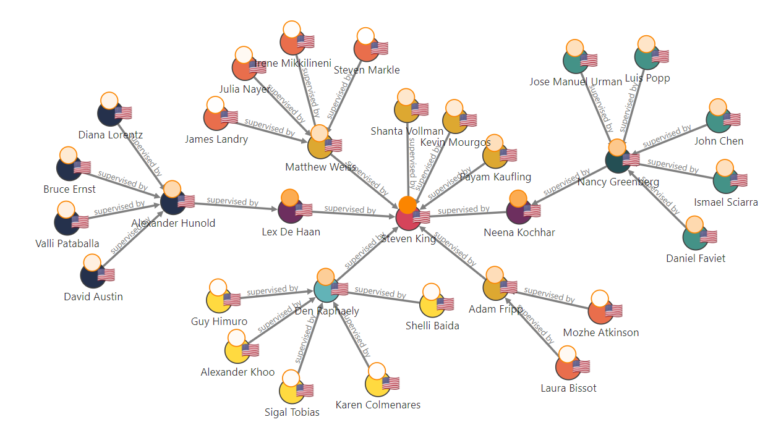
What is Low-Code/No-Code Development?
Low-code/no-code is an app development process that allows developers to build fully functional applications with little or no coding. Low code development platforms work by providing visual graphical interfaces that enable you to drag and drop elements, eliminating the need for coding expertise.
Ultimately, low code enables developers to build cloud-based and web/mobile apps much more quickly and cost-effectively.
If you’re a business owner or developer trying to acquaint yourself with low-code development, you might have stumbled upon Oracle APEX in your search. Oracle APEX is arguably the best low-code development platform for enterprise applications. Of course, there are myriad low-code platforms today, but there are reasons why APEX stands tall.
Oracle APEX low-code development does not only reduce the amount of coding required for developing fully functional enterprise applications; it eliminates complexities of the development process at all levels. Plus, it is free to use on the Oracle Database.
Before going into the unique advantages of Oracle APEX, let’s first grasp an in-depth understanding of the benefits of low code as a whole.
The benefits of Low code development to enterprises
The benefits of low code to enterprises include the following:
1. Get app to market faster
For businesses looking to build incredible enterprise solutions with a tight deadline, low code development can be the perfect go-to. The drag-and-drop functionality and intuitive visual UI enable developers to skyrocket their productivity and build any type of app with robust features in far less time.
2. Company-wide collaboration
By eliminating the need for coding expertise, the board of directors can get involved in the low code development of their company’s enterprise software. Departments outside of IT can therefore participate in decision-making while visualizing the app’s functionality in real time.
3. Low-code apps are scalable
Deploy new apps and scale existing ones to meet the growing customer demands as your business grows. Being cloud-based, low code development platforms are flexible and allow for continuous support and delivery. This is a significant benefit to agile enterprises.
4. Easy to integrate data
Low code benefits enterprise organizations by allowing them to securely integrate databases and logic from their core legacy systems into the new low-code app. They are thereby able to expand and manage their systems at a large scale.
5. Application lifecycle management
One of the greatest benefits of low code development is that these platforms provide all the tools required to optimize project management, version control, requirements management, testing, deployment, and much more, all in one place. This means your business can easily move the app through the ideation phase to the development and testing, therefore accelerating the process.
6. Unburden your IT department
Given that low code development doesn’t particularly require expert development skills, business leaders can build custom apps quickly without involvement from their specialized developers. For example, an accounting manager tired of using generic spreadsheets may be able to build a personalized data entry software easily. This provides the developers with more time to focus on other specialized projects. Upon completion, the manager may hand over the app to a developer to test for compliance or extend the functionality as required.
7. Low code development is cost-effective
Knowing how less coding is required for low code software development, it goes without saying that this method is often more cost effective than traditional means. The lower cost does not translate to lower quality, though. The cost-effectiveness of low code is due to the fact that businesses can achieve more with fewer resources. Companies do not need to hire an extensive team of highly specialized developers to develop and maintain a low-code application.
What’s more, low-code software development boosts efficiency and saves time. And time is money.

Top low-code development platforms
To put things in perspective about why Oracle APEX is considered the best low-code platform, let’s highlight other top low-code development platforms alongside their pros and cons.
Salesforce Platform
The Salesforce platform is one of the leading low code development platforms allowing businesses to execute their customer 360 with AI, automation, and data. In essence, this platform focuses on delivering a seamless, connected customer experience.
Pros
-
- Has a good user interface
-
- Robust data management
-
- Is highly customizable
-
- Has everything you need to develop an app all in one place
Cons
-
- Highly limited features
-
- Pretty slow
-
- Not the most user-friendly low-code platform
-
- Steep learning curve
-
- Starts at $25/user/month, unlike Oracle APEX which is free
ServiceNow App Engine
ServiceNow App Engine is one of the best low-code development platforms for enterprise-level applications. The tools allow both citizen developers and seasoned full-stack developers to create intuitive and intelligent experiences for consumer apps without long development cycles.
Pros
-
- Ease of use
-
- Moderately customizable
-
- Good customer service
Cons
-
- Many users complain of issues with the mobile apps it creates
-
- Pretty limited in capabilities
-
- Considerable learning curve
-
- There are some complaints about its user-friendliness
OutSystems
OutSystems is a global name known for its high performance. This level of performance allows business leaders and developers alike to build any app rapidly while maintaining the intricate capabilities of traditional apps.
Pros
-
- Very fast and therefore saves a lot of time
-
- One of the most easy to use
-
- User friendly
-
- Impressive user interface
Cons
-
- It’s pretty much limited in features
-
- Learning curve
UiPath: Robotics Process Automation (RPA)
UiPath is another great low-code development platform, which is particularly known for its AI-powered performance. The platform combines robotics with a suite of capabilities to automate end-to-end processes in software development. This automation ultimately leads to time savings.
Pros
-
- High level of automation
-
- Impressive user interface
-
- Customizable
-
- Saves time
Cons
-
- UiPath is rather pricey
-
- Also has many limitations
- Not suited for most business users as it Can only be used by software engineers and RPA developers.
-
- Users complain of issues with the automation
Frontegg
Frontegg is a low-code development platform that is more suited for B2B SaaS companies. So if you’re looking to develop a SaaS solution that users will use on a subscription basis, Frontegg can be a great choice.
Pros
-
- Great integrations
-
- Good customer service
Cons
-
- Has documentation issues
-
- Limited
-
- Expensive, starting at $99
-
- Can only be used by software engineers and CTO
-
- Not very customizable
Oracle APEX Low Code Development
The aim of the Oracle APEX low code platform is to enable not only developers but also business users to develop incredible apps with superior functionality, performance, and user experience without any coding expertise.
Unlike some of the best low-code platforms, Oracle APEX does not always require a software engineer to build from scratch. That’s because it eliminates all the complexities of app development at every level.
What makes APEX superior to other low-code development platforms?
Free on the Oracle Database
If your enterprise already runs on the Oracle Database, APEX becomes your recommended go-to as it is free to use and easy to integrate with your existing technologies. This is more cost-effective and easier than having to purchase any other low-code platform.
Ease of use
Oracle APEX is easy to use by almost anyone, with a minimal learning curve. The powerful components allow you to drag and drop high-level of functionalities with zero coding knowledge.
Eliminates all complexity
APEX eliminates many things that make traditional development rigorous, including:
-
- Middle-tier application logic
- Mapping between relational and application objects
- Proliferation of database connections
- Remote procedure call complexity
- High availability and disaster recovery
Able to build any app quickly
Business users can easily app-ify a simple spreadsheet or design mission-critical enterprise-level apps that’ll be used by thousands of end users daily. Whether web or mobile app, native or hybrid, APEX handles it all.
Works with SQL and PL/SQL
If you already have basic SQL and PL/SQL, all the better. This enables you to develop modern web applications very quickly on the Oracle APEX platform. This is also excellent for business owners and accounting managers looking to design a bespoke data analysis tool. Of course, SQL is the industry standard for data aggregation and manipulation.
High level of security
In a world where security breaches are common among organizations, Oracle APEX low code development focuses on building web apps that guarantee organizations and consumers of utmost data security. The platform has built-in authentication, session state protection, and the ability to integrate with Oracle Identity Management for more advanced security requirements.
Responsive design
When you design a mobile app using Oracle APEX low code development, the application will automatically adjust to fit the screen size of any device.
Extensibility
Unlike other low-code platforms, APEX is extensible, allowing developers to incorporate custom code and integrate the app with other Oracle technologies. This extensibility is beneficial when building complex applications that require specific functionalities beyond the out-of-the-box features that APEX provides.
Community and support
Oracle APEX has a supportive community and access to Oracle’s resources. This is great for developers or business users seeking assistance and additional resources or plugins.
Final words
It’s true that preferences defer, and you have to choose a low-code platform that works for your unique needs. However, it’s also true that Oracle APEX has unique features that make it superior to other low-code platforms.
If your enterprise already relies heavily on Oracle Database technologies, that’s enough reason to choose the Oracle APEX low code development platform. If you’re also looking for a free low code or one that doesn’t require you to be a full-stack developer, Oracle can be a great choice.
But remember that although Oracle APEX is deployable by virtually anyone, you may need a developer experienced in the Oracle environment to be able to make the most of this low-code platform and provide impeccable user experience on the app.
Whether you’re looking to add specific functionalities or design a custom interface beyond what your low-code development platform provides, I can help. Get in touch now.



